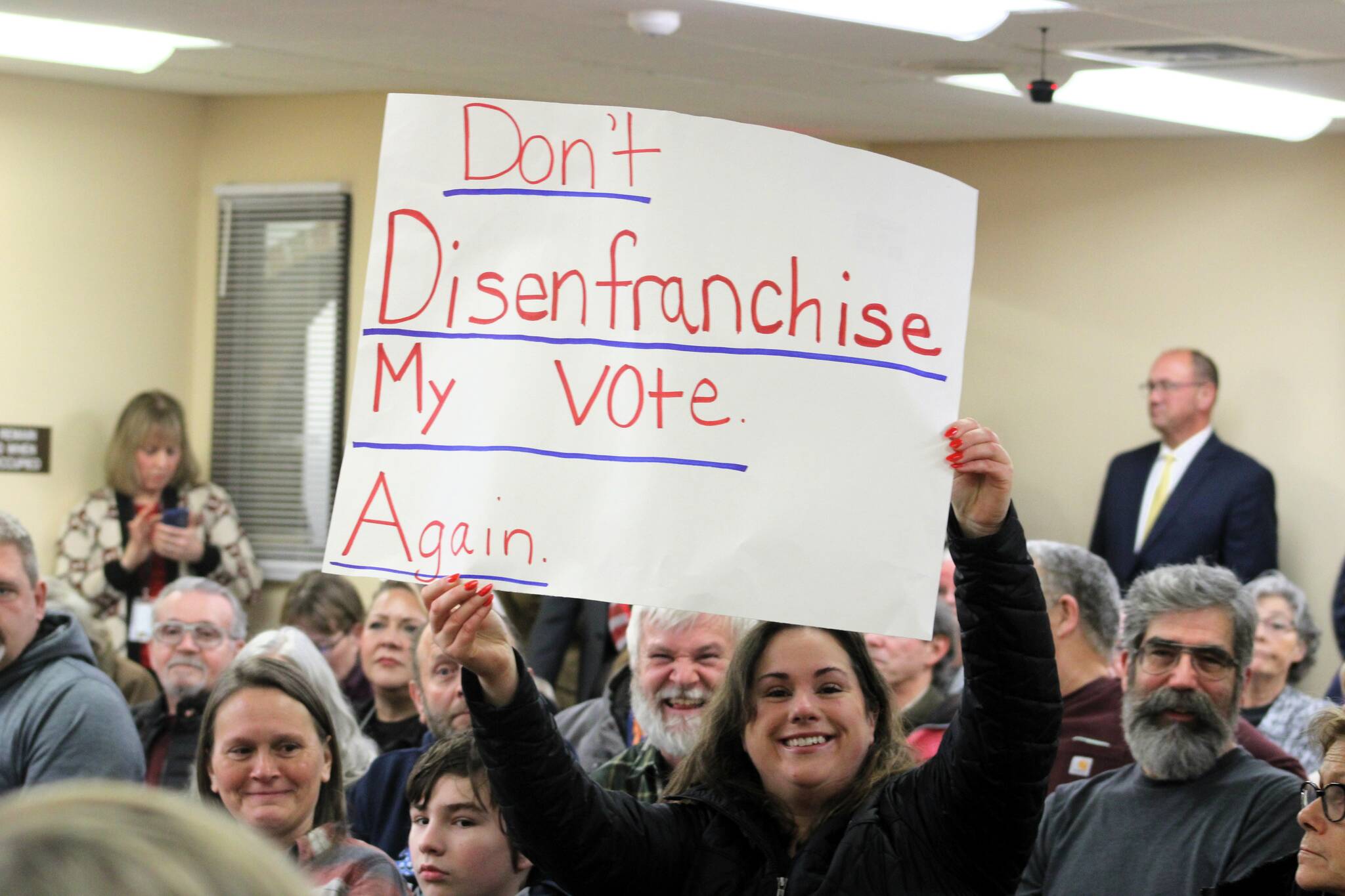A Kitsap County Superior Court judge only took about 10 minutes Jan. 16 to decline a hearing of the latest challenge to former President Donald Trump’s eligibility for the state’s 2024 ballot, believing Kitsap was not the appropriate venue.
Judge Jeffrey Bassett made his belief clear in his swift decision that the issue should be heard in Thurston County, home of the state capital city of Olympia, where the eight Kitsap challengers also filed their identical Jan. 10 challenge to Trump’s eligibility.
Bassett said, “Considering that the litigants are seeking a statewide application, I do not believe that Kitsap County is an appropriate venue for this today.”
The challenge was heard in Thurston County Jan. 18, and a ruling by Judge Mary Sue Wilson found that Washington Secretary of State Steve Hobbs had not made an error in placing the name of Trump on the ballot and had acted consistent with his duties. The case is not expected to proceed further.
Frankey Ithaka, one of the eight challengers, told Bassett in a packed courtroom in Kitsap County, “Our intention is for (the challenge) to be statewide, so that’s why we also filed in Thurston because we didn’t know if Kitsap had jurisdiction to have that motion.”
The remaining challengers include Connor Shelton, Gwyn Johnson, Nicholas Roberts, Shayna Hartley, Michelle Howald, Stefanie Shelton and Robert Brem. The case had been slated to be heard by retired Judge Jay Roof, but the state’s Republican Party objected to anyone besides “an active judge of the Kitsap County Superior Court.” Bassett ultimately took Roof’s place, the nameplate at the chair being changed in the hour before the hearing began.
The crowd, the majority of which was made up of Trump supporters, applauded Bassett’s decision.
“I just think this whole thing is being based on the fact that they don’t actually know what an insurrection is,” said Joe Scott, a member of the Puget Sound Patriots. “It is not asking questions about whether something is illegal or legal, right or wrong.”
Mary Lou Long added: “The right to vote and to pick the candidate of your choice is fundamental to the process. For a people to say that one person is not fit to run for office when they have not violated the law…I may be wrong, but it’s pretty Marxist.”
The legitimacy of Trump’s latest campaign for president has met nationwide challenges of ballot eligibility. The common argument is that he is disqualified under Section 3 of the 14th Amendment in the U.S. Constitution, which states that any former “officer of the United States” is barred from holding office if previously having “engaged in insurrection or rebellion” or “given aid or comfort to the enemies thereof.”
Rulings in Colorado and Maine have successfully removed Trump’s name from their state ballots, but a challenge in Colorado will be heard by the U.S. Supreme Court.
This state’s challenge by the eight registered Kitsap voters alleges in court documents that “Trump engaged in an insurrection when he and his supporters, without evidence, attempted to overthrow the election of (President) Joseph Biden through violence.”
The Jan. 10 document also alleges that, “He has continued to aid and abet those who engaged in violence to overturn the election on January 6, 2021, through his words and financial support.”
Ithaka said the eight plan to see the challenge through to the end. “I think that, given that Washington has this law that allows us to come forward and contest, if not us then who?”
As for write-in votes for those who would still vote for Trump, Ithaka said: “Good luck spelling. They have that right.”
That response had attendees like Long angry. “That has no grounds at all,” she said.


